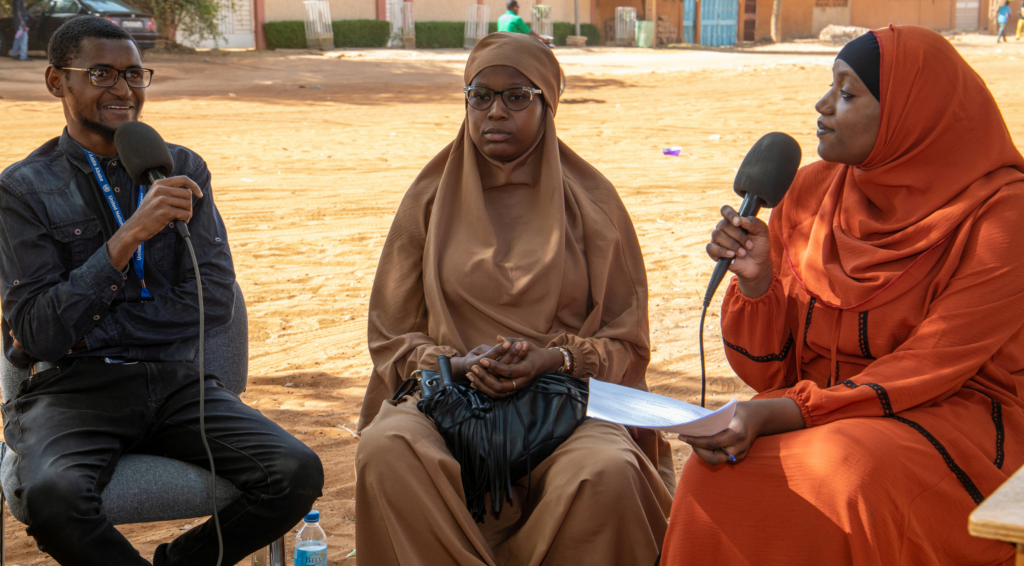
Over the past decade, violence has intensified in the Sahel region. Between August and September 2023, more than 500 civilians were killed as a result of attacks by non-state armed groups, according to INSO. The coups d’état in Mali, Burkina Faso and Niger are partly attributed to poor governance in the region. In this context, the role of independent media in preventing multifaceted crises is crucial. This means providing reliable and inclusive information that is accessible to as many people as possible.
The international community’s exclusively military response to restoring peace in the Sahel has proven ineffective, failing to address the root causes of the region’s instability. Key areas such as social stability, education and food security have been largely overlooked in this approach. In the region, more than 8,000 schools are still closed, including more than 6,100 in Burkina Faso. Added to this are food insecurity, the rising cost of living and the adverse effects of climate change on the population. The role of the independent media is precisely to cover these concerns on a daily basis, to make the voices of the local populations heard and to try to encourage dialogue between all stakeholders.
Unfortunately, the media in the Sahel today faces major challenges. The information ecosystem in the Sahel is fragmented and fragile. While it is home to a large number of media outlets, their level of professionalism is low, making them vulnerable to partisan exploitation. Military regimes have curtailed freedom of expression and of the press, notably by revoking the broadcasting licenses of foreign media such as RFI and France 24, suspending local media and arresting public figures for taking political positions. Many media outlets have censored themselves, as have political players, civil society, experts and ordinary citizens. This undermines any possibility of the inclusive, citizen-based governance needed for the region’s development.
Regional, diversified and reliable information
False information, rumors, hijacked videos and manipulated audios circulate on social networks and are sometimes relayed by the media. Extremely confusing information emanates from the field as well as from the highest political spheres and citizens without any regard for the basic rules of journalism. Misinformation is just as harmful as targeted disinformation. It is difficult to quantify the extent of rumors and to identify their sources, as much of the content is transmitted via channels such as WhatsApp.
To deal with this situation, the Fondation Hirondelle’s three media outlets in the Sahel – Studio Kalangou in Niger, Studio Tamani in Mali and Studio Yafa in Burkina Faso – offer fact-checking and media education sections. Since this spring, the organization has also been offering co-productions to cover the common challenges faced by the people of the region and to find solutions by focusing on local perspectives. The first productions, broadcast in 13 languages on more than 173 radio stations and 12 television channels with more than 8 million regular listeners and viewers, focused on migration and insecurity.